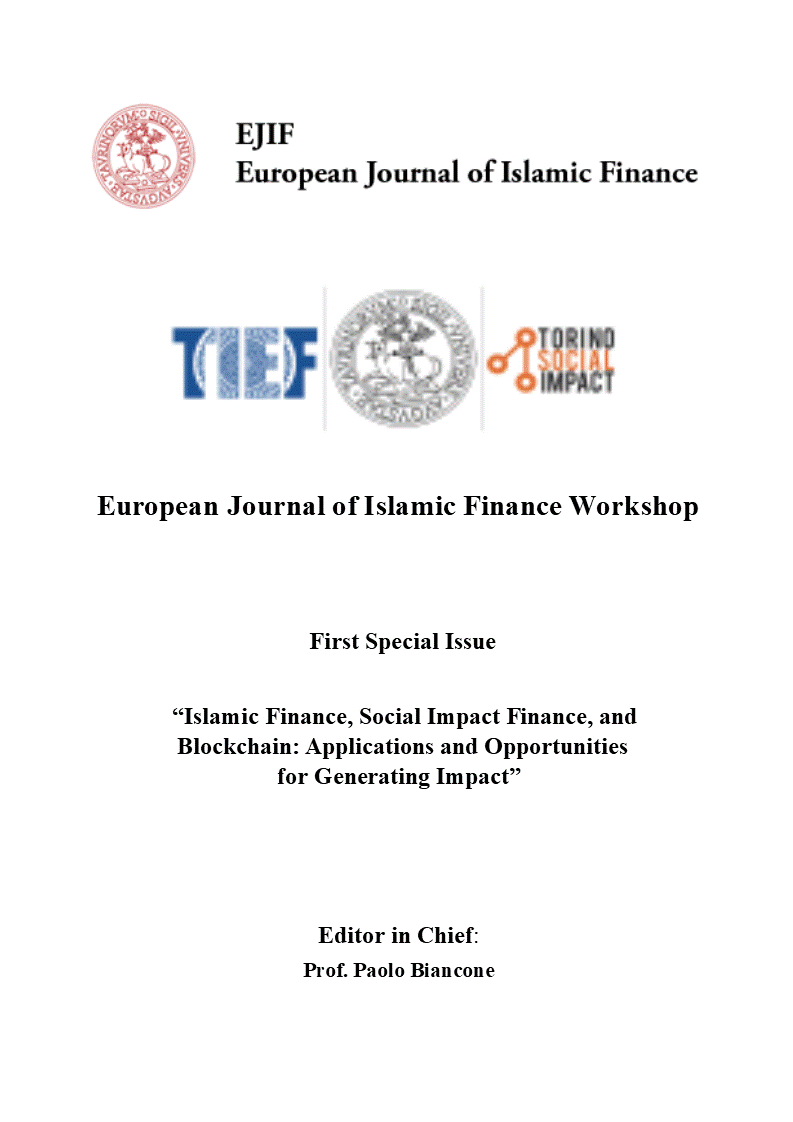Islamic Finance and the New Technology Challenges
Abstract
Islamic finance, as a new economic paradigm based on ancient principles and rules, needs to embrace the new IT opportunities in order to be up to date with the contemporary financial industry. This process will become a “bridge” between the past and the future of socially responsible financing. The world’s financial and economic environment in our days is marked with immense inequality and imbalance. With the emergence of the global capital structures, solely ruled by the principles of the financial markets, the main focus of the economy shifted from real entrepreneurship to a form of capital bureaucracy. The financialization of the economy is a crucial phenomenon of contemporary capitalism, which could lead the world economy nowhere. Structures such as hedge funds, venture capitals and private equities create no real value. The main objective of such financial management firms is short term profits. By cutting costs (firing workers, reducing investments etc.) they have harmful impact on the companies they invest in. In order to evade deleterious effects on the economy, caused by the financialization, an interest free environment and financial technology (fintech) development need to be implemented. Islamic finance as a no-interest based intermediary can be fully embedded in such processes. By nature the Islamic mode of financing excludes the dealing with debt and purely monetary activity. The digital disruption can bring independence, shrink costs, and improve services as a whole. Blockchain is the technology which provides the contemporary base for development of the fintech. On one hand it enables maximum security of transactions and on the other it energizes crowdfunding. In the Islamic finance context of the profit and loss sharing paradigm, the new disruptive technology has the potential to reduce the risk and to increase productivity. In the end by increasing trust, blockchain and Islamic finance can mitigate debt-based financing.References
P. P. Biancone, and M. Radwan, “Social Finance and Financing Social Enterprises: An Islamic Finance Prospective”. European Journal of Islamic Finance, 2019.
N. Chomsky, “Chomsky: understanding the crisis - markets, the state and hypocrisy”. Foreign Policy in Focus, 2009. (available at https://fpif.org/chomsky_understanding_the_crisis_markets_the_state_and_hypocrisy/).
F. Alvaredo, L. Chancel, T. Piketty, E. Saez and G. Zucman, “World inequality report”. World Inequality Lab, 2018.
A. El-Galfy and K.A. Khiyar, “Islamic banking and economic growth: a review”. The Journal of Applied Business Research – Volume 28, Number 5, 2012.
H. Elasrad, “Blockchains for islamic finance: obstacles & challenges”. MPRA Paper No. 92676, 2019. (Online at https://mpra.ub.uni-muenchen.de/92676/)
G. Epstein, “Financialization and the world economy”. Northampton, MA: Edward Elgar Publishers, 2005.
C. Lapavitsas, “Profiting without producing: how finance exploits us all”. Verso, 2013.
M. Mazzucato, “The value of everything - making and taking in the global economy”. Penguin publishing, 2018.
P. P. Biancone and M. Radwan, “Social Finance And Unconventional Financing Alternatives: An Overview”. European Journal of Islamic Finance, (10). 2018.
M. Swan, “Blockchain: blueprint for a new economy”. O’Reilly Media, Inc., 2015.
D. Tapscott and A. Tapscott, “Blockchain revolution: how the technology behind bitcoin is changing money, business, and the world”. Penguin publishing, 2016.
X. Wu and W. Sun, “Blockchain quick start guide”. Packt Publishing, 2018.
P. P. Biancone, S. Secinaro and M. Kamal, “Crowdfunding and Fintech: business model sharia compliant”. European Journal of slamic Finance, (12). 2019.
Copyright (c) 2020 Miroslav Kamdzhalov

This work is licensed under a Creative Commons Attribution-ShareAlike 4.0 International License.
EJIF content is licensed under a Creative Commons Attribution 4.0 International License.
Authors keep the copyrights for their work and give the journal the work's first publication copyright, which is at the same time licensed under a Creative Commons License – Attribution, which in turn allows other parties to share the work with an acknowledgement of the work's authorship and initial publication in this journal.


 EJIF has been approved for inclusion in
EJIF has been approved for inclusion in  EJIF has been approved for inclusion in
EJIF has been approved for inclusion in  EJIF is member of
EJIF is member of  EJIF is listed in the ANVUR (Italian National Agency for the Evaluation of Universities and Research Institutes) as a scientific journal in both
EJIF is listed in the ANVUR (Italian National Agency for the Evaluation of Universities and Research Institutes) as a scientific journal in both 
